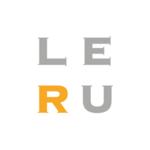LERU Doctoral Summer School in Heidelberg 2023
Concepts of Intervention Science Applied to Global Challenges
July 2 - 8, 2023 • Heidelberg University, Germany
Equipping the next generation of scientists with understanding of main concepts and methods of intervention science and applying them to the converging global challenges: climate change, pandemics, and societal injustice.
[Programme & Reading List] • [Speakers] • [Participant Requirements] • [Accommodation]
Target Audience
PhD candidates, postdocs and young researchers from fields relevant to the topics of the summer school who have a strong motivation for a science of real-life interventions.
Overview
Societies today face multiple and highly interwoven global challenges such as accelerating climate change, antimicrobial resistance, food and water security and safety, pandemics of infectious and non-communicable diseases, and social injustice. Threatening to converge, these global challenges call for the effective and timely transformation of societies worldwide to ensure that we continue to thrive.
Science can massively contribute to tackling these challenges, by discovering, co-designing, and evaluating solutions. While not yet commonplace, a science of intervention is increasingly urgent. The COVID-19 crisis has dramatically demonstrated the scientific success of basic science – with rapid developments of both COVID-19 tests and vaccines – and the failures of real-life deployments of these efficacious technologies. Societies have proven susceptible to division, polarization, political tension, and many individuals have been unable or unwilling to follow intervention and policy prescriptions. A science of intervention can avoid such failures by contributing robust and transferable knowledge on what works and what does not in real-life intervention design and deployment.
The Heidelberg LERU Doctoral Summer School will bring together doctoral students from LERU universities, scientists and scholars of Heidelberg University – from the Heidelberg Institute for Global Health (HIGH), the Interdisciplinary Center for Scientific Computing (IWR), the Heidelberg Institute for Geoinformation Technology (HeiGIT) –, to share expertise and experience with scientific practices of a science of intervention. We will focus on the conceptual understanding of the intervention science methods and discuss them in the context of three major themes– climate change, pandemic prevention, and social injustice – but the summer school will encourage participants to insert case studies and examples beyond these three challenges for discussion.
The three challenges provide many opportunities to understand and discuss the concepts of the methods applied to discover, design, and test interventions. Discussion questions will include the following: What is the need for an intervention, and whose needs are most urgent? How should we approach the design of an intervention, so that it is feasible, viable, and desirable in a particular local context? What methods are applicable to estimate the causal impact of an intervention when it is deployed in real-life? What can we use when we want to elicit the modes and contexts of intervention action?
We will facilitate the discussion of the methodological concepts of the intervention science within context of three global challenges and show how these concepts can be applied in these domains.
Programme & Reading List
The preliminary programme is available for download:
LERU Summer School 2023 HD Programme [PDF]
Last Update: June 28, 2023
LERU Summer School 2023 Logistical Info [PDF]
Last Update: June 28, 2023
The suggested reading list is available for download:
LERU Summer School 2023 HD Reading List [PDF]
Last Update: May 23, 2023
Speakers

Prof. Dr. Manuela De Allegri
Heidelberg Institute of Global Health (HIGH)
Manuela De Allegri focuses on evaluating interventions and systems reforms for population and planetary health. Her research spans economic, performance and impact evaluation. Her areas of expertise include healthcare financing, payment, organization and regulation. Through the systematic application of a mixed methods approaches, Manuela combines quantitative and qualitative methods of data collection and analysis to all of her work. At the moment, Manuela serves as Commissioner on the Lancet Commission Financing Primary Health Care. She is also active as advisor to both the Evidence and Knowledge Group of the Partnership for Maternal, Newborn, and Child Health and the Alliance for Health Policy and Systems Research, where she supports a research program on responsiveness and accountability of health insurance. [Website Manuela De Allegri]
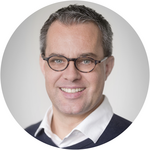
Prof. Dr. Dr. Till Bärnighausen
Heidelberg Institute of Global Health (HIGH)
Till Bärnighausen focuses on identifying, designing and testing novel interventions and policies to boost population and planetary health in many communities and countries worldwide. He is an expert in experimental and quasi-experimental and has long and deep expertise leading large research programs in Africa, USA, Asia and Europe. Till has been principal investigator on grants from many large funders, such as the US National Institutes of Health, the European Union, the European Commission, the German National Science Foundation, the German Ministry of Education and Research, the Alexander von Humboldt Foundation, Wellcome, Volkswagen Foundation, Else-Kröner Fresenius Foundation, and Bill & Melinda Gates Foundation, as well as UNAIDS, World Bank and WHO. He is Alexander von Humboldt Professor of Global Health and Director of the Heidelberg Institute of Global Health (HIGH) at Heidelberg University, Research Fellow at the Harvard Center for Population and Development Studies, and Senior Faculty at the Africa Health Research Institute. [Website Till Bärnighausen]
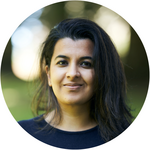
Dr. Aditi Bunker
Harvard T.H. Chan School of Public Health
Aditi Bunker focuses on creating and evaluating interventions and policies to reduce the impact of climate change on human health. Using experimental and quasi-experimental designs, she conducts large-scale causal impact evaluations on interventions in the housing, urban design, infrastructure and food sectors to identify how they affect outcomes, including infectious diseases, food security, and economic productivity. She uses novel approaches to co-design technology- based solutions for populations including growth hacking, citizen science, and hackathons. Aditi is a research lead on grants funded by the European Union, the German National Science Foundation, and Wellcome. She leads a climate change intervention research programme at Heidelberg University and is a visiting scientist at Harvard Chan C-CHANGE. [Website Aditi Bunker]

Prof. Dr. Ina Danquah
Heidelberg Institute of Global Health (HIGH)
Ina Danquah focuses on insight and interventions to boost sustainable nutrition in Africa and globally. For the past 10 years, her research has characterized the dietary behavior of sub-Saharan African populations under transition, and establishing their diet-disease relationships, specifically for adiposity and metabolic health. In addition, Ina aims at determining the interrelations between all forms of malnutrition, infectious diseases and cardio-metabolic health among African populations in their country of origin and among African migrants in Europe. Importantly, Ina quantifies the sustainability of diets in rural and urban sub-Saharan Africa. These sustainability features comprise healthfulness, affordability, cultural acceptability, and climate-friendliness/climate-resilience. Ina has been principal investigator and research lead on grants funded by the German National Science Foundation (DFG), Leibniz Foundation, Robert Bosch Foundation, the German Diabetes Foundation, and is leading the DFG Research Unit on Climate Change and Health. She is the Robert Bosch Junior Professor in Sustainability Science at Heidelberg University. [Website Ina Danquah]
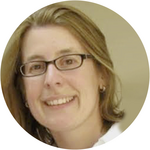
Prof. Dr. Claudia Denkinger
Infectious Diseases and Tropical Medicine Division, Heidelberg University Hospital
Claudia Denkinger is a physician and infectious disease specialist and researcher with a focus on diagnostic tests relevant to population and planetary health. Claudia is principal investigator on large grants from the US National Institutes of Health, German National Science Foundation, German Ministry of Education and Research, and many science foundations. Claudia is an expert in infectious disease epidemiology, design research for diagnostic tests, and intervention research to boost the effectiveness of screening and diagnostic functions in health systems worldwide. Claudia leads the Division of Infectious Diseases and Tropical Medicine at Heidelberg University Hospital. [Website Claudia Denkinger]
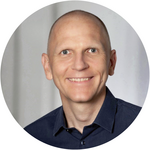
Dr. Stefan Kohler
Heidelberg Institute of Global Health (HIGH)
Stefan Kohler is a physician and economist. His research focuses on measuring the resources needed to implement new policies and interventions in global communities, and on identifying the long-term social and economic impacts of health and innovations in health systems, as well as the impact of aging and multimorbidity on a range of functional and social outcomes. Stefan has led health economics and implementation science work in Africa (Eswatini, Tanzania and Mozambique) and Europe. Stefan leads a research group on economics and global health at Heidelberg University. [Website Stefan Kohler]

Dr. Shannon McMahon
Heidelberg Institute of Global Health (HIGH)
Shannon A. McMahon is a global health scientist trained in qualitative and quantitative research methods. Shannon’s team examines the interplay of health interventions and local contexts to learn how people make decisions related to careseeking for their health. The team then draws upon these insights to better design, implement and holistically evaluate health interventions. Methodologically, Shannon places an emphasis on advancing qualitative and design techniques. Her team has developed or advanced techniques including epistemic interviewing, researcher debriefings and document reviews. Shannon also enjoys pulling from approaches that are relatively underused in public health research, but have proven insightful in other fields such as journaling, Kano models, bodystorming and artefact-driven dialogue. Shannon teaches courses on qualitative methods, mixed methods research, public health anthropology, and academic writing. Along with disseminating information to fellow scientists via academic publications, she also seeks to engage policymakers and to reach lay audiences via information briefs, blogs, newspaper op-eds and media commentaries. [Website Shannon McMahon]
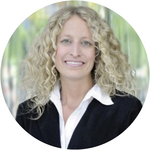
Christine Neumann
Heidelberg Institute of Global Health (HIGH)
Christine Neumann is science manager and leader. Her current work focusses on health promotion and prevention. She manages large research and implementation projects on adolescent health in Africa and multimorbidity in Europe. Prior to joining Heidelberg University, she worked for over ten years in various positions in Brussels at the Permanent Representation of Germany and Austria and at CSR Europe. She also worked for EIT Health and Atlantis Healthcare, leading, evaluating, and supporting innovation and entrepreneurial projects, and prevention and patient support programs.
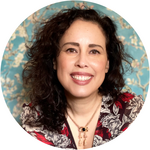
Prof. Dr. Vera Araújo-Soares
Center for Preventive Medicine and Digital Health, Medical Faculty Mannheim of Heidelberg University
Vera is a Professor for Prevention of Cardiovascular and Metabolic Diseases at the Center for Preventive Medicine and Digital Health of the Medical Faculty Mannheim of Heidelberg University. She focuses on behavior change in research, health psychology, public health and clinical settings and has specific expertise in translational behavioural health research. More specifically in developing evidence-based interventions focusing on self-care and self-management of chronic conditions (e.g. pain or obesity) as well as on the promotion of healthy behaviours (e.g. healthy diet and physical activity). This research is theoretically grounded, applied, interdisciplinary and multi-methodological and has been funded by major funders such as the UK NIHR and the Medical Research Council. She is also part of the advisory committee of the Royal Netherlands Academy of Arts and Sciences (KNAW) on Planetary Health. [Website Vera Araújo-Soares]
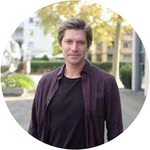
Prof. Dr. Joacim Rocklöv
Interdisciplinary Center for Scientific Computing (IWR)
Joacim Rocklöv focuses on research to boost our understanding of the causes and consequences of climate change. He is a data scientist, mathematical modeller and epidemiologist who works in interdisciplinary team. Joacim has led large research programs on One Health, planetary health, and infectious diseases, funded by the many major science funders and foundation. Joacim is the Alexander von Humboldt Professor for AI in climate change and infectious disease research at Heidelberg University and leads a large research group that is active in Africa, Asia and Europe. [Website Joacim Rocklöv]
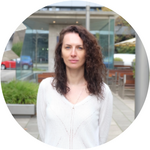
Dr. Marina Treskova
Interdisciplinary Center for Scientific Computing (IWR)
Marina Treskova is a health economist, epidemiologist, biologist and mathematical modeler who focuses on climate change and population health. In her research, she utilizes different models and methods of intervention science to explore effective and cost-effective ways to prevent the emergence and re-emergence of infectious diseases. She has evaluated major public health interventions in Asia and Europe, such as vaccination and cancer screening. Her domain expertise spans vector-borne and zoonotic diseases, zoonotic pathogen spillover from reservoir host animals to humans and domestic animals, and global infectious disease prevention policies and interventions. She evaluates interventions that go beyond conventional public health and target disease emergence at the source, such as upstream prevention policies, mosquito-bite control, and nature-based solutions. [Website Marina Treskova]
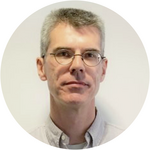
Prof. Dr. Michel Wensing
Heidelberg University Hospital
Michel Wensing is a sociologist and implementation scientist, who focuses on primary healthcare and implementation science in health. His research methods include mixed-methods performance evaluation, qualitative research, randomized controlled trials, and network studies. He has led large research projects on the implementation of clinical guidelines, the organization of ambulatory healthcare, and patients’ perspectives on healthcare. Michel is Professor and Deputy Director of the Department of General and Health Services Research at Heidelberg University. He also heads the master of science in health services research and implementation science at Heidelberg University. [Website Michel Wensing]
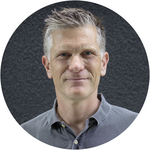
Prof. Dr. Alexander Zipf
Heidelberg Institute for Geoinformation Technology (HeiGIT)
Alexander Zipf is a geographer and computer scientist. He focuses his research on identifying global humanitarian and health needs and opportunities for improved intervention design, targeting and tailoring using spatial methods. He also leads research on digital interventions and crowdsourcing to boost human resilience against extreme heat and environmental pollution and to change behaviors for improved planetary health. Alexander is chair of GIScience (Geoinformatics) and director of the Heidelberg Institute for Geoinformation Technology at Heidelberg University. [Website Alexander Zipf]
Participant Requirements
The application process is open to all members of the League of European Research Universities (LERU). Candidates for the summer school are nominated by their home institutions. If you are interested in applying please contact your local LERU office.
This summer school does not restrict the scientific field of the participants and welcomes applicants from a broad range of disciplines. The participants should be advanced in their doctoral project and have a strong motivation for a science of real-life interventions. Candidates must be available for the entire duration of the summer school. As all sessions will be conducted in English, and fluency in both spoken and written English is required.
Accommodation
The participants are kindly requested to make hotel reservations individually (please book your accommodation by 12 June at the latest). Accommodation costs are covered by the registration fee.
Please refer to our event "LERU Summer School 2023" when booking in one of the following hotels:
- Hotel Rose Heidelberg (95 € including breakfast) – 5 rooms have been pre-reserved for Heidelberg University. Please book your hotel room by 12 June via email (dimi9@web.de).
- SevenDays Hotel Heidelberg (93 € including breakfast) – 5 rooms have been pre-reserved for Heidelberg University, Code “Summer School”. Please book your room by email (heidelberg@sevendays-hotel.de) by 12 June at the latest.
- Hotel Central Heidelberg Hauptbahnhof (89 € per night per person +12 € breakfast, Code: Summer School). Please book your room by email (info@hotel-heidelberg.info / hotel.central.hd@gmail.com (5 rooms are pre-reserved for Heidelberg University – please book by 12 June at the latest).
- Steffis Hostel
You can find additional information on available hotels at the official tourism webpage of Heidelberg: www.heidelberg-marketing.de.
